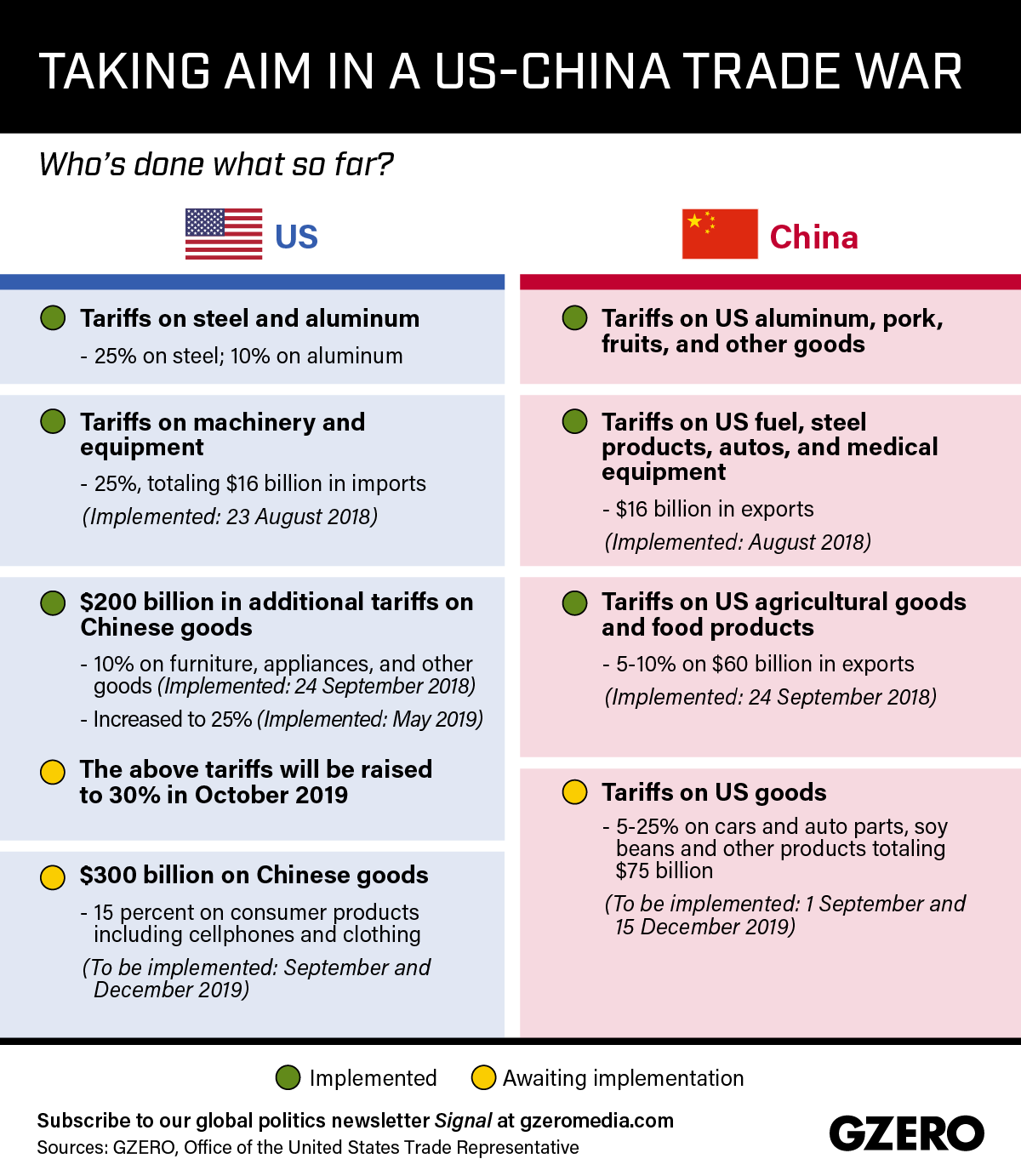August 24, 2019
Wrecking the global economy's hopes for a relaxing late-August Friday, China and the US have taken fresh shots at each other in their deepening trade war.
First, China announced new tariffs on US goods in response to US levies on China's exports that are set to take effect next month.
Trump responded with a vintage tweet storm, lashing out at China and demanding that US firms stop doing business there. The Dow plunged as markets waited for the next shoe to drop. And drop it did: later in the day Trump announced higher tariffs on nearly everything that China exports to the United States.
Why now? Bear in mind, all of this comes right as Trump is leaving for this weekend's G7 summit in France. That gathering already promised to be a testy one – but with the global economy slowing, the impact of Trump's increasingly nasty trade war with China will add fresh tensions to the occasion.
So where are we in the trade war now? Here is an updated list of what measures each side has imposed to date, and what's next. Both sides have a lot at stake, but from the looks of it, the list isn't going to get shorter any time soon.
More For You
People in support of former South Korean President Yoon Suk Yeol rally near Seoul Central District Court in Seoul on Feb. 19, 2026. The court sentenced him to life imprisonment the same day for leading an insurrection with his short-lived declaration of martial law in December 2024.
Kyodo
65: The age of former South Korean President Yoon Suk Yeol, who was sentenced to life in prison on Thursday after being found guilty of plotting an insurrection when he declared martial law in 2024.
Most Popular
In an era when geopolitics can feel overwhelming and remote, sometimes the best messengers are made of felt and foam.
Hungarian Prime Minister Viktor Orban holds an international press conference in Budapest, Hungary, January 5, 2026.
REUTERS/Bernadett Szabo/File Photo
The Hungarian election is off to the races, and nationalist Prime Minister Viktor Orbán is facing his most serious challenger in 16 years.
How people in G7 and BRICS countries think their policies will effect future generations.
Eileen Zhang
Does skepticism rule the day in politics? Public opinion data collected as part of the Munich Security Conference’s annual report found that large shares of respondents in G7 and several BRICS countries believed their governments’ policies would leave future generations worse off.
© 2025 GZERO Media. All Rights Reserved | A Eurasia Group media company.
